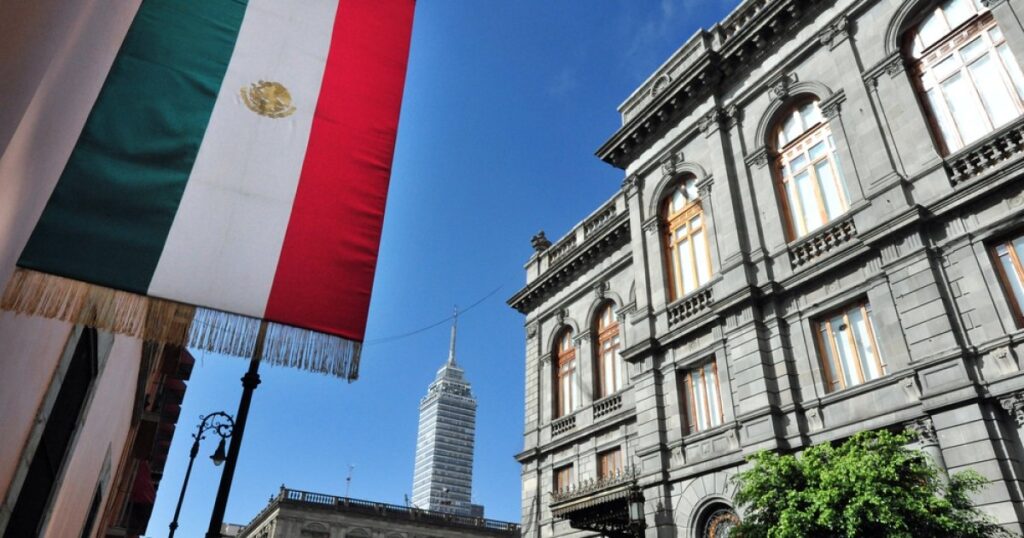“Political language is […] “It gives the pure wind a solid appearance.” – George Orwell
In Mexico, a stagnant political discourse clings to a vanished state. Names such as the National Human Rights Commission, the Energy Regulatory Commission, the Attorney General's Office, and the Ministry of Education still fly outside government buildings. These banners generate cognitive dissonance because they are still used to discuss a vanished reality. Political debates and analyses are usually bogged down in terms such as “institutions are in crisis” and “the country's democracy is in retreat,” but these words do not capture a much more dangerous and irreversible situation. The country's institutional machine room, the “levers and buttons” of government, no longer exist, and remnants of past institutions will continue to obstruct and delay any political project in Mexico for years to come.
Mexico is no longer in a period of institutional weakness. The hidden, more threatening picture, and the most far-reaching legacy of the current administration, is the destruction of Mexico’s entire institutional machine room. Most of the institutions have been rendered nonfunctional by the abolition of institutions, arbitrary cuts in the federal budget for essential public services, firing of professional civil servants, appointment of political sycophants, and explicit instructions to the bureaucracy to stop doing their jobs. In the weeks before the largest election in Mexico’s history, it is understandable that most of the attention is focused on who the next president will be. While it is very important to compare the contrasting political projects proposed by the two main candidates, the political discourse misses the important fact that the government is hollow and unstable, with little or no tools to maneuver, respond, and execute, whoever the next president is.
In a functioning or functioning democracy, institutions are the conduits of power. They provide the levers and switches that enable policy implementation and ensure the durability of national projects and strategies. Without institutions, the power of individuals, however strong, is insufficient and inadequate to replace the lasting impact that only institutions can build. Thus, a key responsibility of democratic governments is to ensure that the next elected leader inherits a relatively coherent and effective rules-based order and institutions that enable them to pursue their policy objectives. Irresponsibility aside, the harm and cruelty is in governments that operate and problem-solve too poorly. The cliché that “breaking is easier than building” is accurate, and the ongoing destruction of institutions will be very difficult to reverse.
This process was not a miscalculation or a mistake, as it is often said. Institutional collapse was a deliberate political project to privatize power. Thus, maintaining the rhetoric of “populist” or “incompetent” government is insufficient to understand the motivations behind the collapse. Needless to say, the process was hidden under gift wrapping. Announced by the double-word “republican austerity” was an attempt to undo the old lesson that government institutions are essential barriers and impediments because they deprivatize government functions. Institutions are guardrails for the power of individuals, but for a political movement dedicated to privatizing everything, institutions are a weakness, because their functioning, by definition, involves erasing the family name from political activity.
In October, for the first time, Mexico will have a president who takes the oath of office without a functioning government. There are no ministries to implement education reforms, no human rights commission to protect the people, no police to pursue and investigate crimes, fewer and worse airports and highways to keep the economy running, no specialized bureaucracy in the Ministry of Economy to implement economic policy, and no public agencies to respond to emergencies and natural disasters. What we mistakenly call “government” has been reduced to three main tasks — propaganda, pursuing political opponents, and nepotism — and all other functions are subordinate to these objectives.
Political persecution and false tactics such as using the military for an unparalleled number of tasks that were once civilian are often used as smokescreens to give the impression that a government exists. The militarization of the country is an essential component of the country's institutional collapse, even though it is deceptively presented as a new, more efficient extension of the state. But this is an illusion, a false representation of the existence of a government that never fills or replaces the gap created by the removal of civilian institutions. The new government does not inherit a set of crises (i.e. security, health, finances), but a more widespread collapse.
Any government needs tools to plan, implement policies, and respond to emergencies, and specialized bureaucracies are mechanisms for both short-term reactions and long-term strategies that Potemkin regimes cannot plan for or respond to. In modern democracies, institutions depersonalize politics to thwart whims and caprices, building pause and reflection into human impulses. Anyone who wants to understand Mexican politics should pay attention to the signs outside government buildings:


